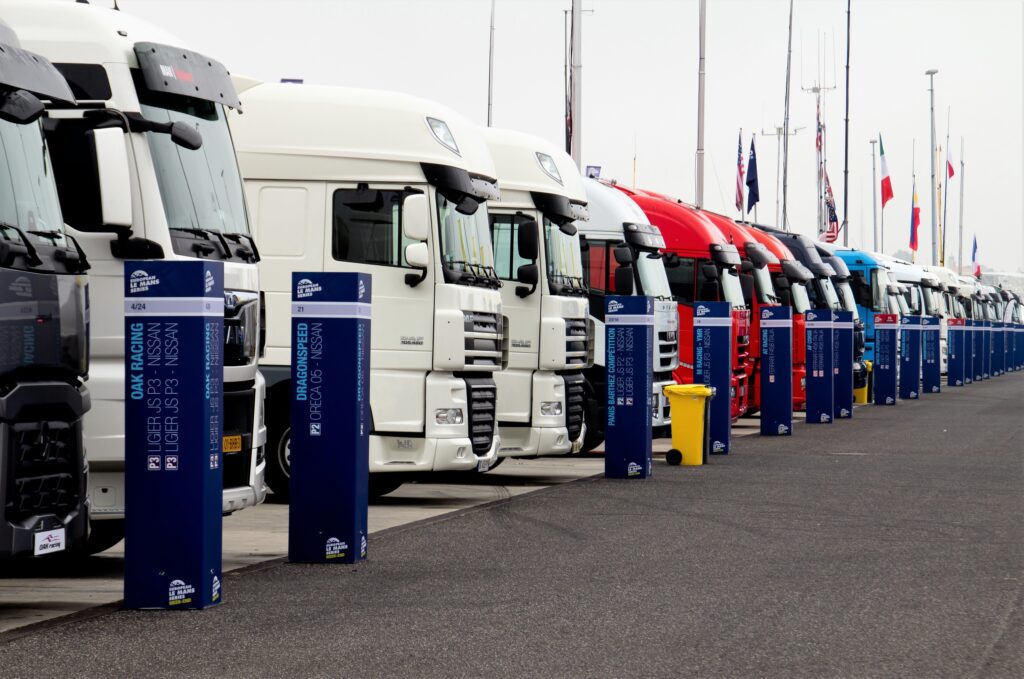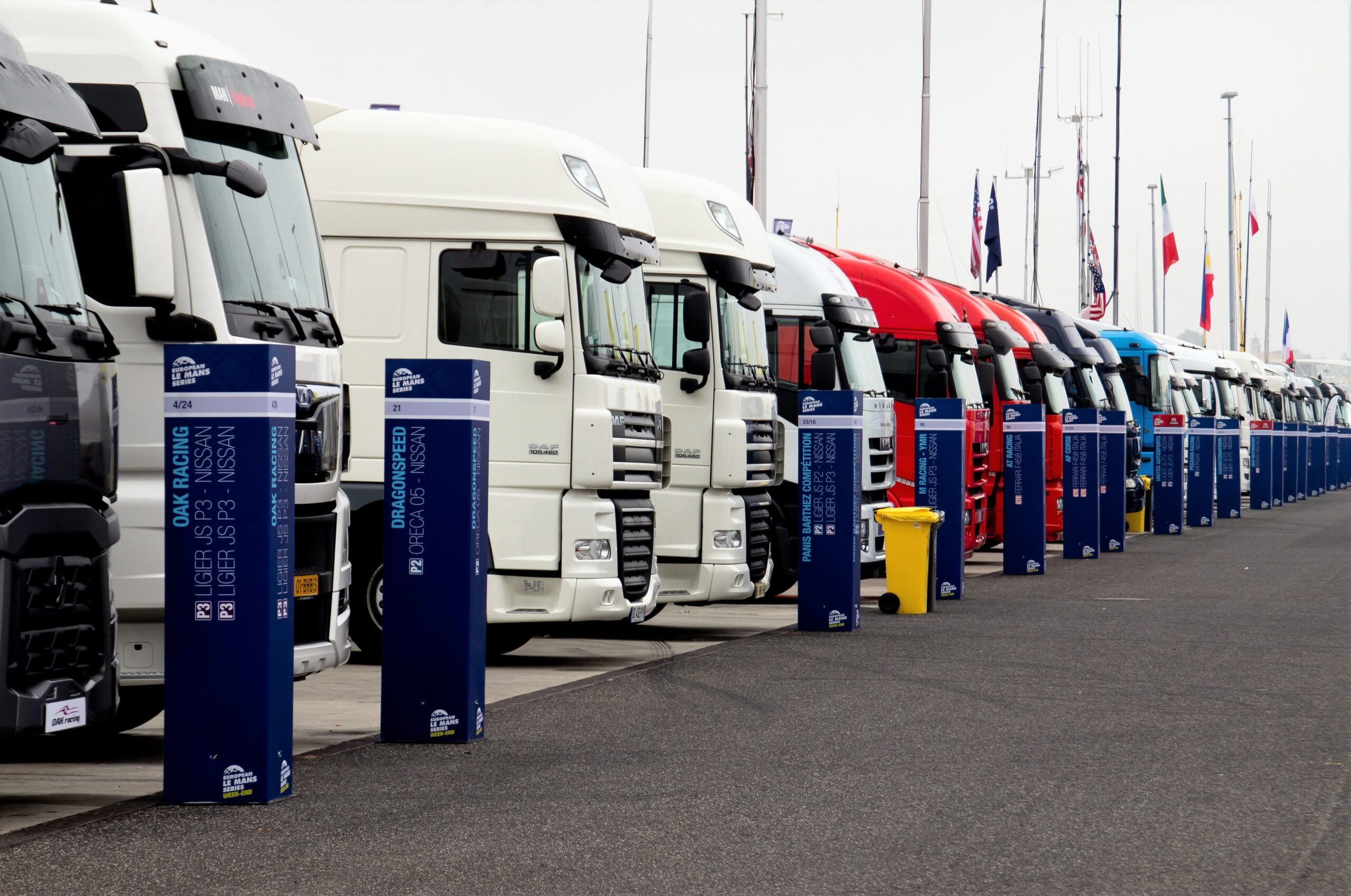
Contents
Article: “Types of Truck”
There are 7 types of Trucks
- Light Trucks
- Medium Trucks
- Heavy Trucks
- Specialized Trucks
- Off-Road Trucks
- Electric Trucks
- Autonomous Trucks
Introduction of Types of Trucks
Trucks are the workhorses of the transportation industry, serving a crucial role in the movement of goods and materials. With their diverse capabilities, trucks come in various types to meet different needs. In this article, we will explore the wide range of trucks and their unique features, highlighting their importance in transportation and logistics.
I. Light Trucks
Light trucks are versatile vehicles designed for personal and light commercial use. They offer the convenience of everyday transportation while providing utility for hauling cargo or towing. Two common types of light trucks are pickup trucks and Sport Utility Trucks (SUTs).

Types of Light Trucks
Its further divided into 2 types of trucks
- A. Pickup Trucks
- B. Sport Utility Trucks (SUTs)
A. Pickup Trucks
- Compact Pickup Trucks
Compact pickup trucks, also known as mid-size trucks, strike a balance between maneuverability and cargo capacity.
They are popular among individuals seeking a versatile vehicle for both personal and light-duty work purposes.
- Full-size Pickup Trucks
Full-size pickup trucks are renowned for their towing and hauling capabilities. They are often preferred by contractors, outdoor enthusiasts, and individuals with demanding cargo needs.
B. Sport Utility Trucks (SUTs)
SUTs combine the features of an SUV and a pickup truck, offering a spacious cabin and a cargo bed. They provide the flexibility to transport passengers and carry cargo simultaneously, making them ideal for adventurous individuals and families.
Also Read: Top 10 Car Brands in the World

II. Medium Trucks
Medium trucks are commonly used for local delivery, construction, and other medium-duty applications.
They offer a balance between maneuverability and load capacity.
Some notable types of medium trucks include flatbed trucks, box trucks, tow trucks, and dump trucks.
Types of Medium Trucks
Medium Trucks further divided into four (4) types of truck
- A. Flatbed Trucks
- B. Box Trucks
- C. Tow Trucks
- D. Dump Trucks
A. Flatbed Trucks
Flatbed trucks have an open cargo area without sides or a roof, allowing for the easy loading and transportation of oversized or irregularly shaped items. They are widely used in construction, transportation of machinery, and other industries that require flexible loading options.

B. Box Trucks
Box trucks, also known as cube vans or box vans, feature an enclosed cargo area with a box-shaped structure.
They are commonly used for local delivery services, as they provide weatherproof storage and security for goods.
C. Tow Trucks
Tow trucks, also referred to as wreckers, are specialized vehicles designed for towing disabled or illegally parked vehicles.
They come in various configurations, including flatbeds and integrated towing systems, allowing for efficient vehicle recovery and transport.

D. Dump Trucks
Dump trucks are designed for transporting loose materials such as sand, gravel, or construction debris.
They have a hydraulic mechanism that lifts the cargo bed, allowing for controlled unloading by tilting the bed and dumping the contents.

III. Heavy Trucks
Heavy trucks are built to handle substantial loads and perform demanding tasks. They are commonly used in industries such as construction, logistics, and agriculture. Notable types of heavy trucks include semi-trailer trucks, concrete mixer trucks, garbage trucks, and tanker trucks.
Types of Heavy Trucks
Heavy Trucks further divided into 4 types of truck
- A. Semi-trailer Trucks
- B. Concrete Mixer Trucks
- C. Garbage Trucks
- D. Tanker Trucks
A. Semi-trailer Trucks
Semi-trailer trucks, also known as tractor-trailers or 18-wheelers, consist of a powerful engine (the tractor) and a detachable trailer.
They are the backbone of long-haul transportation, capable of carrying large quantities of goods across vast distances.
B. Concrete Mixer Trucks
Concrete mixer trucks are specially designed to transport freshly mixed concrete from the batching plant to construction sites.
They feature a rotating drum that keeps the concrete agitated during transport to maintain its quality until it is ready to be poured
C. Garbage Trucks
Garbage trucks, also called waste collection vehicles, are crucial for waste management and sanitation services. They come in various configurations, including front loaders, rear loaders, and side loaders, facilitating the efficient collection and disposal of garbage.
D. Tanker Trucks
Tanker trucks are designed to transport liquids, such as petroleum, chemicals, or food-grade substances.
They have specialized tanks with reinforced structures to ensure the safe transportation of hazardous or sensitive materials.
IV. Specialized Trucks
In addition to the commonly known types of trucks, there are specialized trucks designed for specific purposes. These trucks serve niche industries and have unique features tailored to their respective applications. Some notable examples include fire trucks, refrigerated trucks, mobile crane trucks, logging trucks, and armored trucks.
Types of Specialized Trucks
Specialized Trucks further divided into five (5) types of truck
- A. Fire Trucks
- B. Refrigerated Trucks
- C. Mobile Crane Trucks
- D. Logging Trucks
- E. Armored Trucks
A. Fire Trucks
Fire trucks, also known as fire engines, are equipped with specialized firefighting equipment and water tanks.
They play a crucial role in firefighting operations, providing firefighters with the necessary tools to combat fires and rescue individuals.
B. Refrigerated Trucks
Refrigerated trucks, also called reefers, are essential for transporting perishable goods at controlled temperatures.
They are equipped with refrigeration units to maintain the freshness and quality of items such as food, pharmaceuticals, and floral products.
C. Mobile Crane Trucks
Mobile crane trucks combine the capabilities of a truck and a crane, offering mobility and lifting power.
They are used in construction, infrastructure projects, and other industries requiring heavy lifting and maneuverability.
D. Logging Trucks
Logging trucks are specifically designed to transport timber from forests to sawmills or processing facilities.
They often feature specialized trailers and additional support structures to accommodate the long and heavy logs.
E. Armored Trucks
Armored trucks provide secure transportation for valuable items, such as cash, precious metals, and confidential documents.
They have reinforced bodies and enhanced security features to protect against theft and unauthorized access.
V. Off-Road Trucks
Off-road trucks are designed to tackle challenging terrains and environments where standard vehicles would struggle to operate. These trucks excel in off-road capabilities, making them suitable for various industries and specialized applications. Common types of off-road trucks include all-terrain vehicles (ATVs), military trucks, and construction trucks.

Types of Off-Road Trucks
Off-Road Trucks further divided into three (3) types of Truck
- A. All-Terrain Vehicles (ATVs)
- B. Military Trucks
- C. Construction Trucks
A. All-Terrain Vehicles (ATVs)
All-terrain vehicles, commonly referred to as ATVs or quads, are compact off-road vehicles designed for recreational use and light utility tasks. They offer exceptional maneuverability and are popular among outdoor enthusiasts, farmers, and rescue teams.
B. Military Trucks
Military trucks are rugged and versatile vehicles used by armed forces for transportation, logistics, and combat support operations.
They are built to withstand harsh conditions and have the capacity to carry troops, supplies, and heavy equipment.
C. Construction Trucks
Construction trucks encompass a range of specialized vehicles used in construction and infrastructure development.
Examples include dump trucks, concrete mixer trucks, and off-road haulers designed to transport construction materials, excavated soil, and heavy machinery.
VI. Electric Trucks
With the increasing focus on sustainability and reduced emissions, electric trucks have gained prominence in recent years. Electric trucks offer several advantages over conventional diesel-powered vehicles, including lower operating costs and reduced environmental impact. Let’s explore the growing trend of electric trucks and their various applications.

Types of Electric Trucks
Its further divided into Four (4) types of truck
- A. Growing Trend towards Electric Vehicles
- B. Benefits and Limitations of Electric Trucks
- C. Electric Pickup Trucks
- D. Electric Delivery Trucks
A. Growing Trend towards Electric Vehicles
The transportation industry is witnessing a significant shift towards electric vehicles (EVs), driven by environmental concerns and advancements in battery technology. Electric trucks are part of this transition, offering clean and efficient alternatives to traditional fuel-powered trucks.
B. Benefits and Limitations of Electric Trucks
Electric trucks provide several benefits, including reduced emissions, quieter operation, and lower fuel costs. However, they also face challenges such as limited driving range, longer refueling times, and the need for a robust charging infrastructure.
C. Electric Pickup Trucks
Electric pickup trucks are gaining popularity among consumers and businesses alike. Companies like Tesla, Rivian, and Ford have introduced electric pickup truck models with impressive performance capabilities, highlighting the potential for electric trucks in the light-duty segment.
D. Electric Delivery Trucks
Electric delivery trucks are well-suited for urban environments, where emission reduction and noise reduction are critical. With the rise of e-commerce and last-mile delivery services, electric delivery trucks offer a sustainable solution for efficient and environmentally friendly logistics.
VII. Autonomous Trucks
Advancements in autonomous driving technology have paved the way for self-driving trucks. Autonomous trucks have the potential to revolutionize the transportation industry by improving safety, efficiency, and productivity. Let’s explore the concept of autonomous trucks and their implications.

Introduction, Advantages and specification of Autonomous Trucks
- A. Introduction to Autonomous Driving Technology
- B. Advantages and Challenges of Autonomous Trucks
- C. Applications and Future Prospects
A. Introduction to Autonomous Driving Technology
Autonomous trucks rely on a combination of sensors, artificial intelligence, and advanced algorithms to navigate and operate without human intervention. Technologies such as radar, LiDAR, and computer vision enable autonomous trucks to perceive their surroundings and make real-time decisions.
B. Advantages and Challenges of Autonomous Trucks
Autonomous trucks offer several advantages, including improved safety, reduced driver fatigue, and increased efficiency through optimized routing and platooning. However, challenges such as regulatory hurdles, public acceptance, and technological limitations must be overcome for widespread adoption.
C. Applications and Future Prospects
Autonomous trucks have the potential to transform long-haul transportation, logistics, and delivery services. They can enhance efficiency, reduce transportation costs, and contribute to a safer and more sustainable future. The development and deployment of autonomous trucks are actively pursued by major truck manufacturers, technology companies, and startups.
Conclusion
In conclusion, the world of trucks is incredibly diverse, catering to a wide range of transportation needs across industries. From light trucks designed for personal and light-duty use to heavy trucks capable of hauling massive loads, each type of truck has its unique features and applications. As technology continues to advance, electric and autonomous trucks are shaping the future of transportation, promising increased sustainability, efficiency, and safety. Whether it’s moving goods, construction projects, or emergency services, trucks play an indispensable role in our modern society, constantly evolving to meet the demands of a changing world.
